WINDHAM — Bryce Lay usually moves through his house at warp speed, flitting from his computer to a video game and then on to the next thing.
But when it’s salsa-making time, Bryce is all business.
With methodical focus, he lays tomatoes, onions and peppers on the grill, turning them as they roast. Inside his house, he rinses rows of jars in a salsa-producing assembly line that takes over the kitchen. The process is peppered with encouragement from his mother: “Good job, son. There you go.”
Bryce, a 15-year-old Windham resident with severe autism, is the inspiration behind Maine-Tex Grilled Salsa. And his mother, Stephanie Lay, is the driving force behind the grilled salsa – possibly the only one of its kind on the market. It is now sold at Hannaford in Falmouth and at fairs across the state. The newly formed company, still in its infancy, has a unique goal: employ Mainers on the autism spectrum while supporting a nonprofit autism advocacy group.
“Who would have ever thought of salsa and autism?” Lay said. “I have been an autism activist for a decade and I became a salsa maker six months ago by posting a photo on Facebook.”
In reality, Lay, a native of Cumby, Texas, has been making her signature grilled salsa for years (“I just put the veggies on the grill one day to see how it would turn out,” she says). She taught Bryce, who likes to cook his own meals, how to make the salsa a few years ago. But it wasn’t until a few months ago when she posted online a photo of him making the salsa that things started to take off.
Friends inundated Lay with messages asking if they could buy a jar of the salsa, and one friend suggested they start a business. Within two weeks, the Lays had 109 orders, a patent attorney, a food scientist and the United States Department of Agriculture involved.
“It’s been crazy ever since,” Lay said.
SHARED STRUGGLE
Bryce was diagnosed with autism at 11:38 a.m. on Dec. 5, 2002, when he was 2 years old. It’s a moment Lay won’t forget.
For more than a decade now, they have tackled challenges from his autism and a self-injurious behavior disorder they now have under control with the use of medical cannabis. Stephanie and Bryce Lay moved to Maine from Texas in 2009 and settled into a cozy house next to a lake in Windham.
Bryce’s self-injurious behavior caused him to bang his head, eventually leaving 33 holes in the wall of their home. When Lay encountered a rough financial patch after the death of her father, the electricity was turned off. After being turned down for assistance because she earned slightly too much money, Lay said she returned home to her dark house to deal with a son in a downward spiral. The stress of the situation and the break in his routine was too much for him to handle.
Lay said she realized if she was struggling, so were the parents of other children with autism. Determined to help, she founded the Special Foundation for Autism. The organization aims to advocate, educate and alleviate some of the stress of raising a child with autism. There are an estimated 1.5 million people in the United States who have some form of autism, according to the Autism Society of Maine.
Lay said her foundation can help parents in Maine navigate their way through therapies, medications, legal rights and financial problems.
Once her salsa business is profitable, Lay plans to give a portion of the proceeds to the foundation, which will employ one-on-one aides to work with the people with autism she plans to hire to make the salsa.
Andrea Myhaver, president of the Special Foundation for Autism, which is raising money to apply for its nonprofit tax-exempt status, said it has been astounding to see Lay’s vision for the salsa company and the progress she has already made toward her goal. She said it is especially important to address the needs of people with autism who lose access to support services once they are adults.
“It sounded crazy, but so crazy it would work,” Myhaver said of the salsa business. “This allows us to directly help those with autism. They age out of the system and we want to be able to bridge that gap because they’re human beings who are amazing. We have an opportunity to make a real difference in their lives.”
Lay also wants to help create a legacy for Bryce, who she said has calmed down and gained a sense of purpose since they launched their business. Bryce, who lives in a group home, now proudly tells people his family business is “making salsa.”
“I’m always challenging Bryce to do things,” she said. “If I pass away, he’s on his own. I want him to be able to take care of himself.”
IDEA SHELVED
One day earlier this year, Lay was shopping for ingredients at the Hannaford in Falmouth and feeling grateful for the abundance of 99-cent-per-pound tomatoes. She walked up to store manager Doug Mercier to thank him.
“She said she wanted to talk about salsa,” Mercier said.
And so there, in the middle of the produce section, Lay laid out her vision for Maine-Tex Grilled Salsa. Mercier was hooked even before he sampled and fell in love with the spicy blend. Mercier has a niece with autism and was impressed with Lay’s goal of employing people on the spectrum. He offered to carry the salsa in the store, where it’s now displayed as a featured “Close to Home” product.
“I love salsa and love her story,” he said. “For me it was a no-brainer.”
Before the salsa could hit the Hannaford shelves, Lay had to navigate a long USDA approval process that included sending jars of salsa to a food scientist to check the shelf life and pH balance of each of her three flavors. She also obtained a copyright on her recipe (it is the only known grilled salsa on the market) and worked with local chefs to adapt her recipe to larger batches. The entire process cost several thousand dollars; Lay has started an account on the fundraising website GoFundMe to help with other start-up costs.
Maine-Tex Grilled Salsa comes in three flavors: Walker’s Wicked Mild, named for a family Lay has worked with through her advocacy efforts; Mr. Man’s Wicked Medium, named for Bryce, using the nickname his mom gave him as a baby; and Whitehouse’s Wicked Spicy, named for their first customer. The labels promise salsa that’s “like summer in a jar.” The salsa costs $5.99 per 16-ounce jar.
As word of her salsa spread through the community, Danielle Desimon, owner of Danielle’s Sebago Diner, offered to let the Lays use her kitchen to make salsa after the diner closes for the day. At only $100 a month for use of a commercial kitchen, it was an offer that brought Lay to tears.
“That was an amazing offer. That doesn’t happen every day,” she said. “The community has really pulled together for us.”
This week, the diner kitchen will undergo a state inspection so Lay can get a license to produce her salsa there. She said the extra space and professional equipment will allow her to immediately ramp up production from 45 to 500 jars a day.
That will come just in time: Hannaford sold nine cases of Maine-Tex Grilled Salsa in less than two weeks and has placed an order for more. Lay hopes to expand her line into other stores soon.
Launching a business has been a whirlwind, but when Lay stops to reflect on how quickly salsa became her life, she describes the takeaway simply.
“Proud. Wow, I’m proud,” she said. “The last decade has been flashing through my mind a lot, with all the hard times. It makes it all worth it.”
Copy the Story Link
Send questions/comments to the editors.


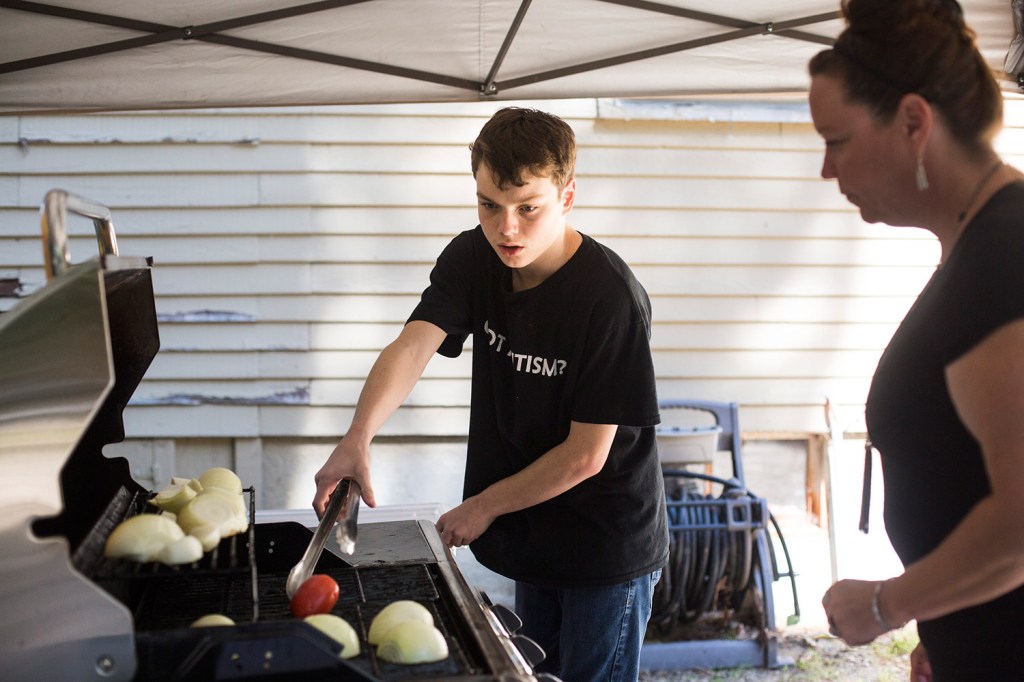
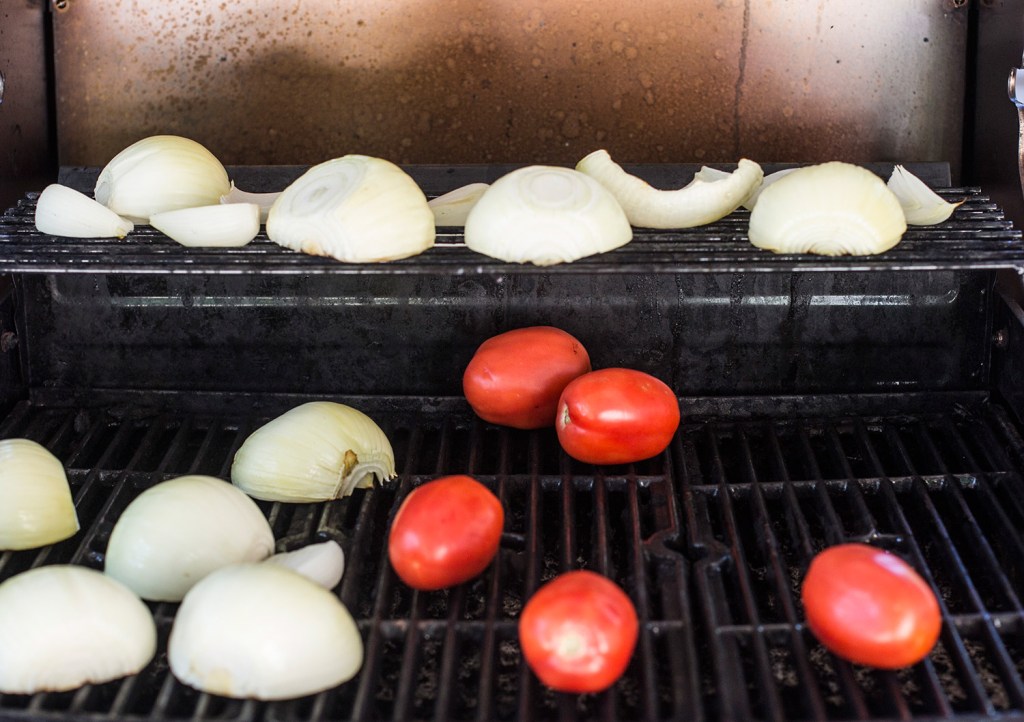
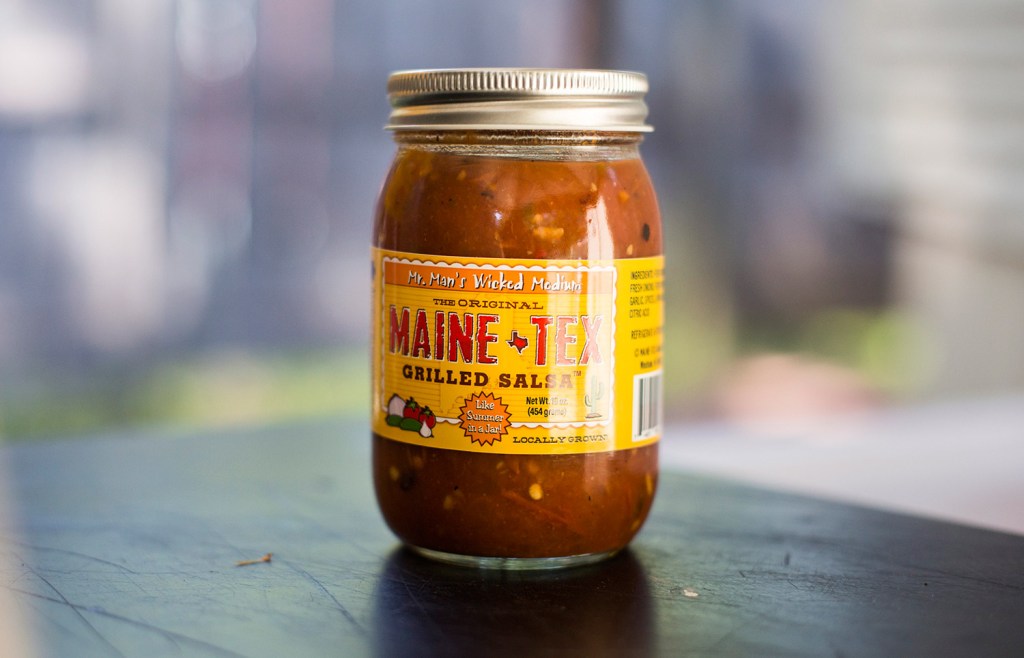
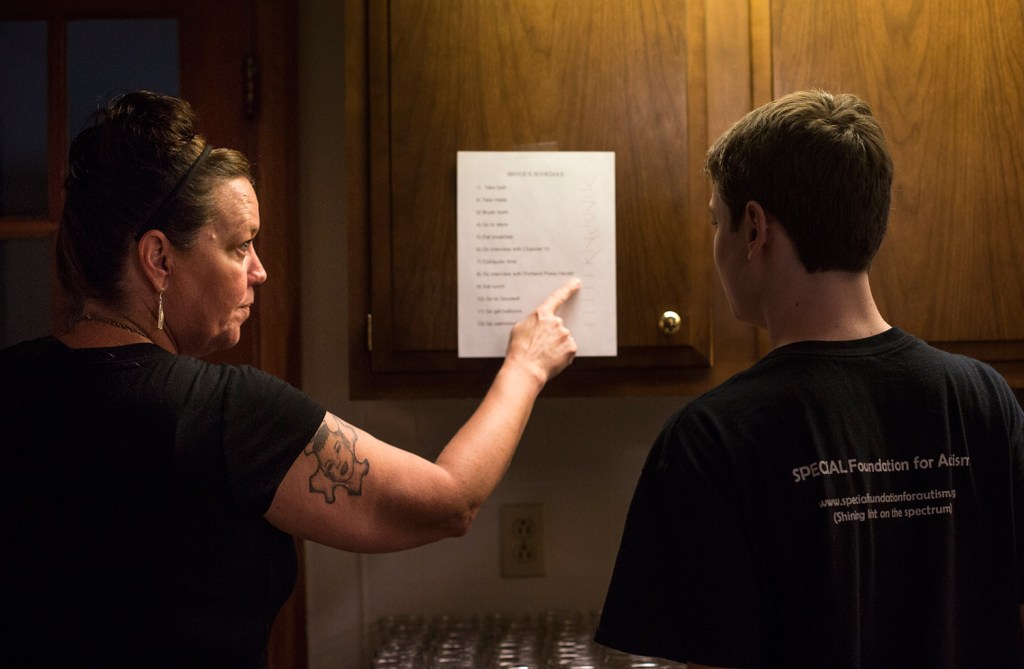
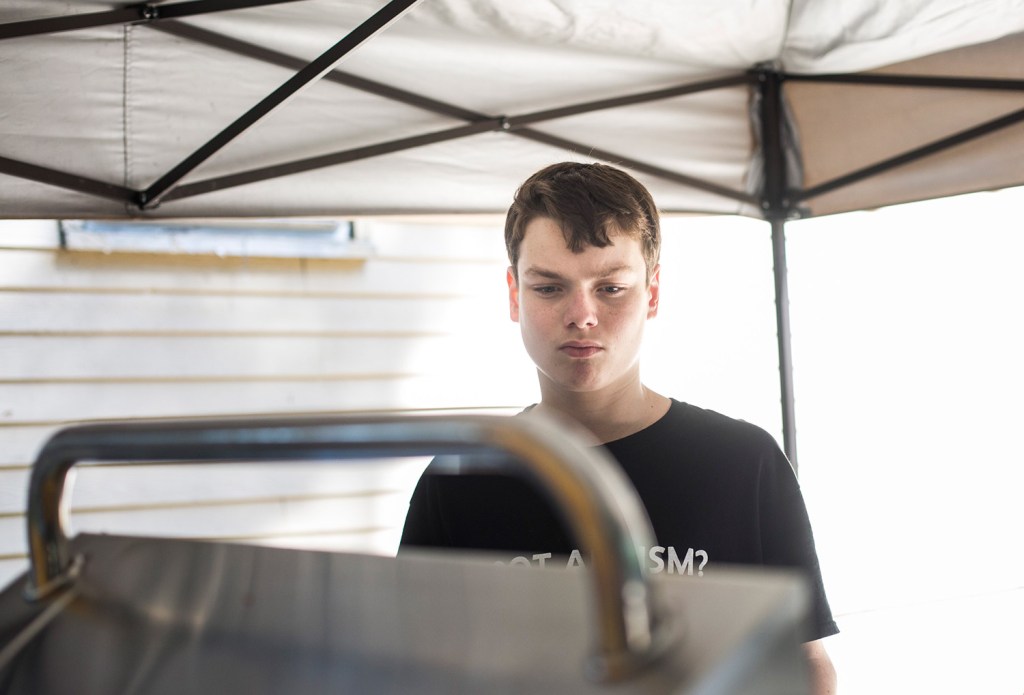
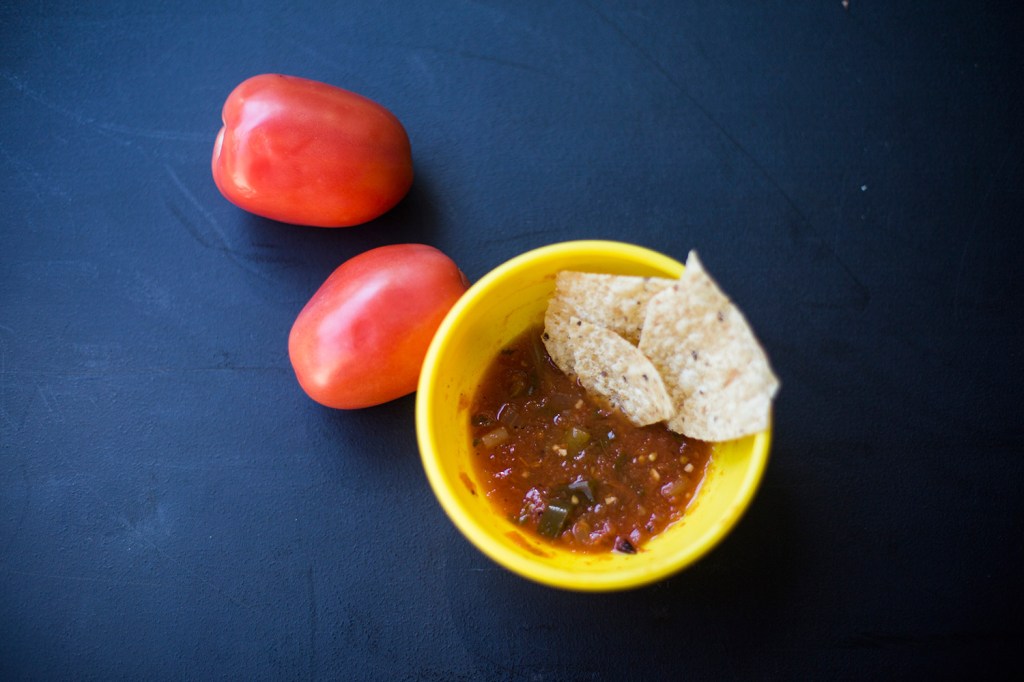

Success. Please wait for the page to reload. If the page does not reload within 5 seconds, please refresh the page.
Enter your email and password to access comments.
Hi, to comment on stories you must . This profile is in addition to your subscription and website login.
Already have a commenting profile? .
Invalid username/password.
Please check your email to confirm and complete your registration.
Only subscribers are eligible to post comments. Please subscribe or login first for digital access. Here’s why.
Use the form below to reset your password. When you've submitted your account email, we will send an email with a reset code.